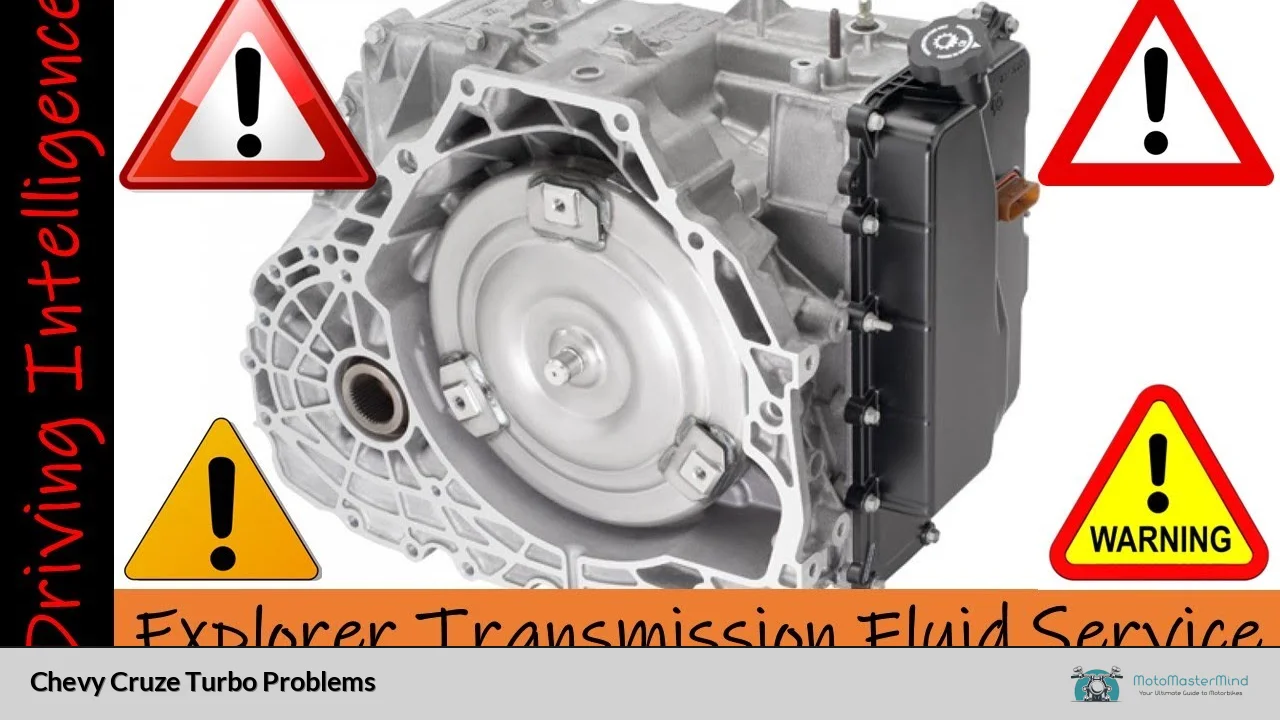Are you tired of dealing with transmission problems in your 2013 Ford Explorer? Don’t worry, you’re not alone. Many owners have experienced issues with the transmission system in this particular model year. In this article, we will dive into the common transmission problems faced by 2013 Ford Explorer owners and provide some insights on how to address them.

One of the most reported problems is a rough shifting or jerking sensation when accelerating or decelerating. This can be quite frustrating and even dangerous, especially when driving at high speeds. The root cause of this issue is often attributed to a faulty transmission solenoid or a worn-out torque converter. Replacing these components can help restore smooth shifting and improve the overall performance of your vehicle.
Another frequent complaint revolves around transmission fluid leaks. A leaking transmission can lead to a loss of fluid, which in turn can cause overheating and eventual failure of the transmission system. It is essential to identify and repair any leaks promptly. Common culprits for leaks include worn seals, gaskets, or damaged transmission lines. Regularly checking the transmission fluid level and addressing any leaks immediately can save you from costly repairs down the road.
Some 2013 Ford Explorer owners have also reported experiencing delayed engagement when shifting gears. You might notice a delay in response when you shift from park to drive or reverse. This issue is commonly associated with a failing transmission valve body or a worn-out clutch. It is advisable to have a qualified mechanic inspect and diagnose the problem accurately to determine if a repair or replacement is necessary.
The 2013 Ford Explorer has had its fair share of transmission problems. From rough shifting to fluid leaks and delayed engagement, these issues can have a significant impact on the overall performance and reliability of your vehicle. If you are experiencing any of these problems, it is crucial to consult with a trusted mechanic who specializes in Ford vehicles. By addressing these transmission issues promptly, you can enjoy a smoother and more enjoyable driving experience in your 2013 Ford Explorer.
Unveiling the Troubles: A Closer Look at the Infamous 2013 Ford Explorer Transmission Problems
Introduction: Have you ever wondered about the notorious transmission issues that plagued the 2013 Ford Explorer? In this article, we will dive deep into the details of these problems, shedding light on what made this particular model year earn its infamous reputation. So buckle up and get ready for a closer examination of the 2013 Ford Explorer transmission woes.
The Notorious Transmission Problems: When it comes to the 2013 Ford Explorer, the transmission problems were a major source of concern for many owners. One of the main issues reported was a jerking or slipping sensation when shifting gears. Imagine driving down the road, feeling the vehicle hesitate and lurch unexpectedly – not exactly the smooth ride you’d expect from a reliable SUV.
Another common complaint was related to the transmission completely failing, leaving drivers stranded and frustrated. The sudden loss of power and the inability to accelerate can turn any journey into a nightmare. These incidents led to a heightened sense of unease among owners, who rightfully expected their vehicles to perform flawlessly.
Root Causes: So, what caused these transmission troubles? One possible explanation is the faulty design of the clutch system. Over time, the clutches could wear out prematurely, leading to erratic shifting behavior and eventual failure. This issue affected both the automatic and manual transmissions in the 2013 Ford Explorer.
Furthermore, inadequate transmission fluid cooling could contribute to the problem. Heat build-up within the transmission can accelerate wear and tear, exacerbating the existing issues. The combination of design flaws and insufficient cooling mechanisms created a perfect storm for transmission malfunctions.
Recalls and Solutions: Realizing the severity of the situation, Ford took action to address these transmission problems. The company issued recalls to rectify the issues faced by affected owners. The recall involved inspecting and replacing the faulty components, such as the clutch plates and seals, to improve the overall performance and reliability of the transmission.
Conclusion: The 2013 Ford Explorer’s transmission problems were undeniably a cause for concern among owners. The jerking sensations, sudden failures, and unexpected breakdowns left many frustrated and seeking solutions. Ford acknowledged the issues and implemented recalls to rectify the faults, demonstrating their commitment to customer satisfaction and vehicle quality. However, it serves as a reminder that even reliable manufacturers can encounter challenges with specific models. As an informed consumer, it’s essential to be aware of such issues before making a purchase decision or taking necessary steps for maintenance and repairs.
Transmission Woes: How 2013 Ford Explorer Owners Battled Frustrating Performance Issues
Are you a proud owner of a 2013 Ford Explorer? If so, you may have encountered some frustrating performance issues that left you scratching your head. Don’t worry, you’re not alone. Many other owners have experienced transmission woes with their 2013 Ford Explorers. In this article, we’ll delve into the details of these problems and explore how owners battled through these challenges.
One common issue reported by 2013 Ford Explorer owners is transmission slipping. Imagine you’re driving along the highway, and suddenly you feel a loss of power as if the transmission is unable to engage properly. It’s like riding a rollercoaster without control. This frustrating problem can make your daily commute a nerve-racking experience. But fear not, there are solutions available to address this concern.

Another headache for owners is rough shifting. You may notice that when you accelerate or decelerate, the transmission shifts gears with a jolt or hesitation. It’s as if the gears are grinding against each other, causing an uncomfortable jerking sensation. This can be quite unnerving and even dangerous in certain situations. However, there are steps you can take to mitigate this issue and restore smooth shifting to your beloved Explorer.
Furthermore, some owners have reported transmission overheating problems. Imagine driving on a hot summer day, and suddenly, your dashboard lights up with a warning message indicating that your transmission is overheating. This could lead to potential damage and costly repairs if left unaddressed. Luckily, there are preventive measures you can take to ensure proper cooling of your transmission and avoid any overheating mishaps.
From Reliable Ride to Gearbox Nightmare: Exploring the Perplexing Transmission Problems in the 2013 Ford Explorer

Introduction: Picture this: cruising down the open road, wind in your hair, enjoying a smooth ride in your 2013 Ford Explorer. However, what happens when that once reliable vehicle starts experiencing perplexing transmission problems? In this article, we delve into the challenges faced by owners of the 2013 Ford Explorer and shed light on common transmission issues that can turn your driving experience into a gearbox nightmare.
Transmission Troubles:
Shuddering Starts: One of the most frustrating problems reported by many 2013 Ford Explorer owners is shuddering or jerking during acceleration. This issue often occurs when shifting from first to second gear, leaving drivers perplexed and concerned about potential damage to their vehicle.
Harsh Shifting: Another commonly cited problem revolves around harsh and abrupt shifting between gears. Some drivers have reported feeling a jolt or a thud when the transmission changes gears, making for an uncomfortable and unsettling driving experience.
Transmission Slippage: Imagine stepping on the gas pedal only to feel a delay in power delivery or a slipping sensation. Transmission slippage, where the engine revs but the vehicle fails to accelerate as expected, is another headache for 2013 Ford Explorer owners. This issue can occur unexpectedly while climbing uphill or during sudden acceleration.
Overheating Transmissions: Excessive heat can wreak havoc on a transmission, and unfortunately, some owners of the 2013 Ford Explorer have encountered overheating problems. This can lead to a host of other issues such as fluid leaks, premature wear and tear, and even complete transmission failure if left unaddressed.
Premature Transmission Failure: While not as common as the aforementioned problems, premature transmission failure has been reported by a number of 2013 Ford Explorer owners. The transmission may suddenly stop functioning altogether, leaving drivers stranded and facing costly repairs.
Conclusion: The 2013 Ford Explorer, known for its reliability and performance, has unfortunately been plagued by a range of perplexing transmission problems. From shuddering starts to harsh shifting and overheating issues, these challenges can turn your driving experience into a real nightmare. If you’re an owner of a 2013 Ford Explorer, it’s crucial to stay vigilant and address any transmission problems promptly to avoid further damage and potentially costly repairs. Stay tuned for our next section, where we explore possible solutions and preventive measures to help you overcome these transmission woes.
Breaking Down the Numbers: The Extent and Impact of Transmission Failures in the 2013 Ford Explorer
Are you curious to know more about the extent and impact of transmission failures in the 2013 Ford Explorer? Let’s dive into the numbers and uncover the details.
When it comes to the 2013 Ford Explorer, one aspect that has raised concerns is the occurrence of transmission failures. It’s essential to understand just how widespread this issue is and the implications it can have on vehicle performance and safety.
According to available data, a significant number of 2013 Ford Explorers experienced transmission failures during their lifespan. These failures can manifest in various ways, such as rough shifting, delayed engagement, slipping gears, or complete transmission breakdowns. Such issues can be frustrating for owners and potentially compromise the overall driving experience.
The impact of transmission failures goes beyond inconvenience. Not only can they lead to costly repairs or replacements, but they also pose safety risks. Imagine being in the middle of traffic when your transmission suddenly fails, leaving you unable to accelerate or change gears properly. This situation could potentially result in accidents or stranded motorists in hazardous conditions.
To address these concerns, Ford initiated several actions. In 2016, they issued a recall affecting certain 2013 Ford Explorer vehicles equipped with specific transmission models. The recall aimed to rectify potential defects that could cause abrupt transmission failures. Owners were encouraged to bring their vehicles to authorized dealerships to have the necessary repairs performed.
While recalls are an important step towards resolving transmission issues, it’s crucial for vehicle owners to stay informed and proactive. Regular maintenance and servicing can help detect early signs of transmission problems, allowing for timely repairs and preventing further damage.

